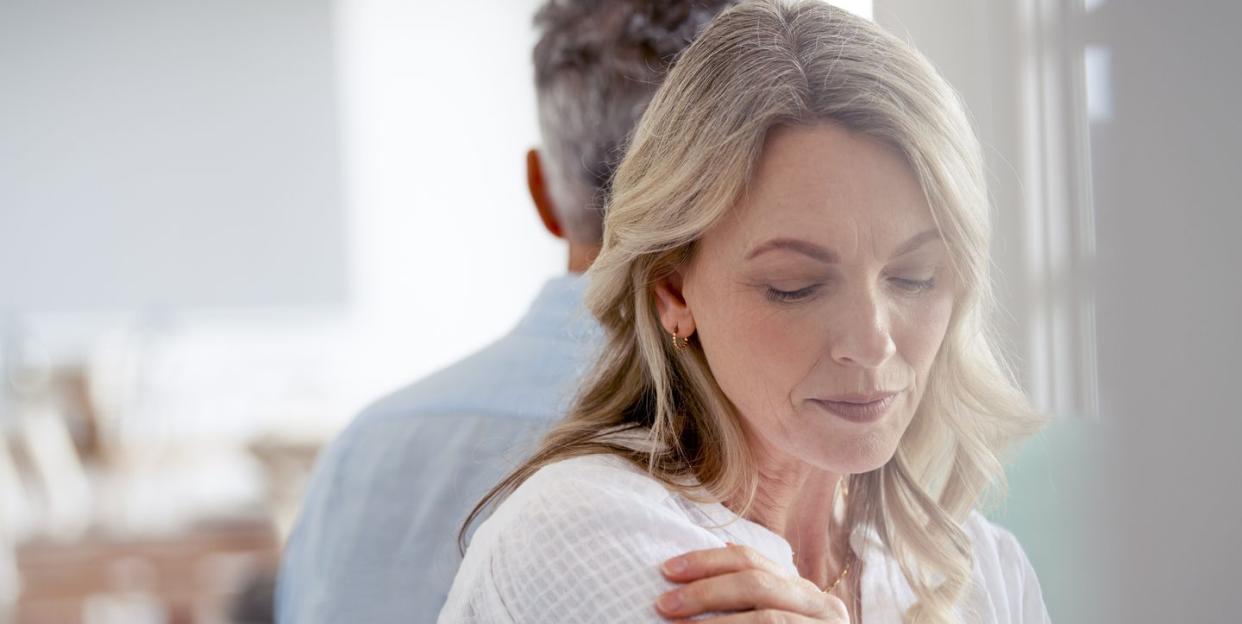A Therapist Explains How Healing From a Narcissistic Relationship Can Be Harder Than It Seems

- Oops!Something went wrong.Please try again later.
Clinical psychologist and licensed therapist Dr. Ramani Durvasula specializes in helping people identify the many warning signs of narcissistic relationships and abuse in their own lives. Time and again, she reiterates how difficult and exhausting it can be to leave a narcissistic relationship—and for those who do, as she lays out in a new YouTube video, there is always the risk that the same thing can happen again.
"I want all survivors to be walking with all the swagger in the world, but I'm still going to say it, don't get cocky," she says. "None of us are immune. And the danger comes when we think we are... Trauma bonds and historical vulnerabilities can obviously magnify our risk, but so too does our belief that 'we got this.'"
Durvasula compares narcissistic abusers to "viruses" that mutate; they will always be able to figure out a way to get in. And it's not just the obvious warning signs such as charisma, grandiosity and love-bombing that you need to watch out for: there are subtleties to it. And while your previous narcissistic relationship may have been romantic in nature, that doesn't make you bulletproof in other areas of your work or social life.
"Survivors absolutely can be confident, but they have to remain aware of the risks out there," she says. It's analogous to walking home alone late at night: if you have to do it, be on alert. Another worthwhile comparison is people with addiction issues who are in recovery. Every day is a commitment to not drinking, or using, or gambling. In this context, a recovering addict would not be encouraged to think "I got this" and let their guard down simply because they're aware of old patterns."Exposure to narcissistic folks has kind of a similar vibe," says Durvasula. "Once we've been through narcissistic abuse, we don't have the luxury of saying 'well this is never going to happen to me again.'"
The real danger in believing that you've got narcissists figured out, she explains, is that then you may exercise a tendency to underplay red flags. A far more prudent outlook, Durvasula adds, would be to exercise an abundance of caution.
"People become more discerning, more aware, more tuned into instinct, more willing to act on red flags, and more self-possessed," she says. "I am absolutely confident that people can start finding themselves again, separate from the narcissistic relationship. However, our histories of narcissistic abuse are vulnerabilities, and awareness is mindfulness. It's watching people carefully, it's moving slowly, and being willing to step back when things don't feel OK... Even if all that it does is stop you from becoming an enabler, that's really big too."
You Might Also Like

